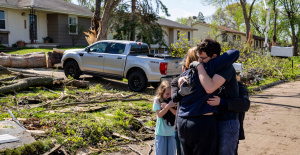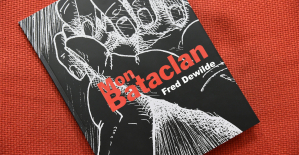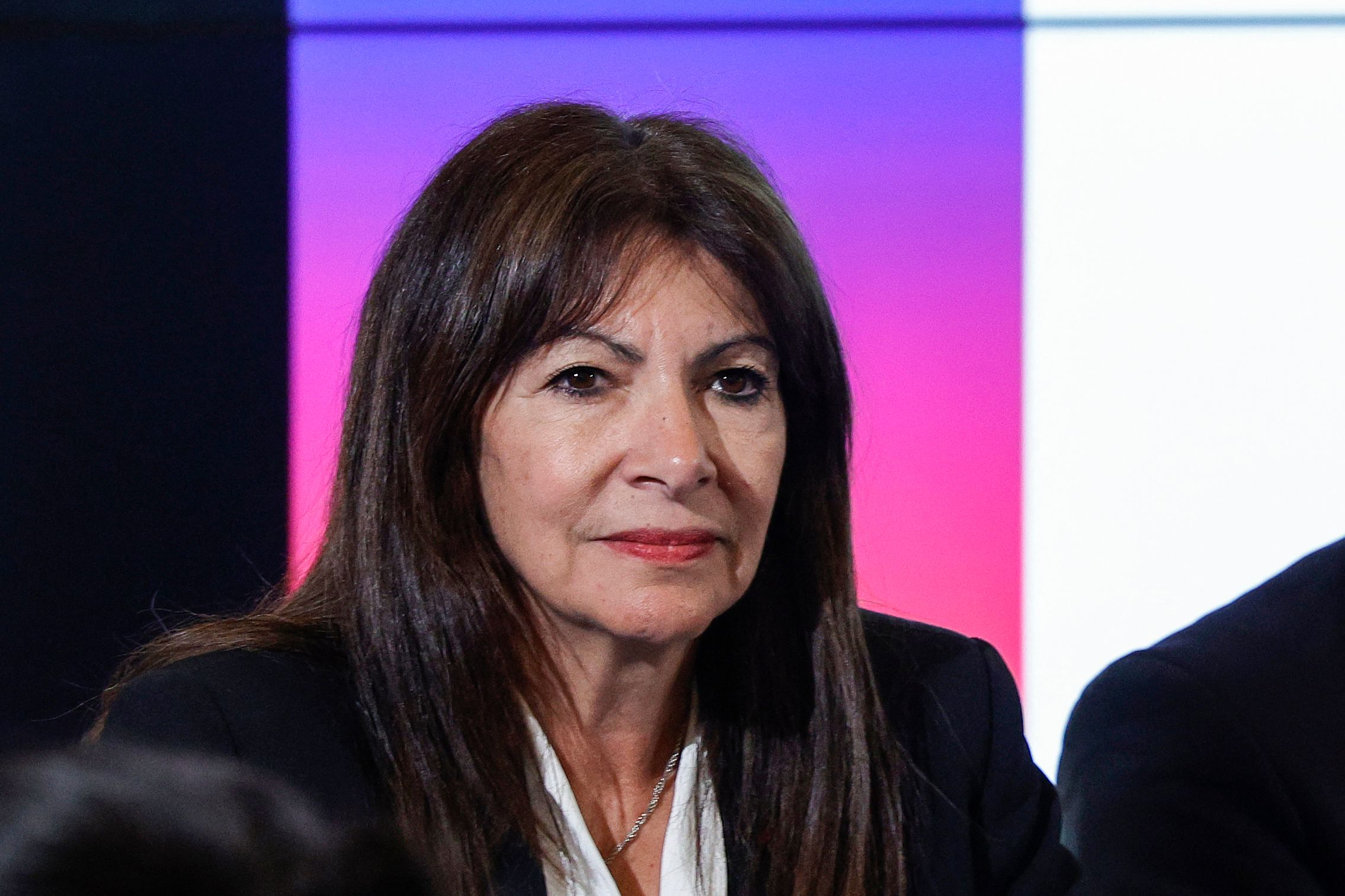forecasts shows that society's need for skilled workers with vocational training will be higher than the number of professionals in the community educate and educate, continues more and more students choosing the general studies programmes of studies rather than vocational programs at upper secondary education.
Columnist Mats Kirkebirkelandis a counselor in Civita and deputy representative to the Norwegian Parliament for the Right.
Last published post No, Mímir Kristjánsson. The value added in Oslo is higher than on the west coast "Full representativeness" would in any event given the victory to the "blue" side in Progress, No state krisepakker because of the weather Let's talk less about Finnmark and more about Akershus Hit better than the ShameIn a Civita-a note published today, the point I on the three historical trends that can explain why.
Trend 1: Responsible for occupational and vocational education in Norway has gone from the civil and private sphere, mainly, the public.
Trend 2: to the Professional and biggest achievement has been less flexible, more standardized and theory-heavy, at the same time as the students/candidates coming out later in practice.
Trend 3: to the Professional and super-has, gradually, been given a lower status in society.
Although correlation does not necessarily imply causality, launches I still have 17 concrete measures that can get more to choose and complete vocational programs at upper secondary education and raise the yrkesfagenes status.
Allow and encourage more private owned and operated yrkesfagskoler of all sizes. theOpen up the opportunity for all students, not just students with weak grades or high attendance, can be praksisbrevkandidater, with a standardized race to go up to svenne - or fagprøven as an external candidate. the
Personalise practice and teaching in vocational programs according to each student's needs, through the provision of secondary education where one can combine work in the practice and teaching every week, every other week or at other more flexible time periods than the current "standard" 2+2 model. the
Expand the GERMAN (Vocational and admission, previous TAF), which combines the professional disciplines and a minor, where one gains admission and course/journeyman's certificate in four years, to more subjects and schools. the
Have offers that combines the professional disciplines with other general studies programmes lines as music, dance and drama, media and communication, art, design and architecture, and physical education. the
Offer more sommerskolekurs within the various vocational programs at the secondary level. the
Open to complete upper secondary education at the school in a lower pace than the current 2 years. For example, 3, 4 or 5 years, but with offers of internships or lærlingplass by the side of the studies. the
In the large cities, one should have more yrkesfagskoler that specializes in a certain vocational programs, such as technical yrkesfagskoler or within the traditional håndverksfagene. One should avoid to have yrkesfagskoler with wide yrkesfagstilbud without a clear profile and culture. the
Have the opportunity kveldsundervisning by the upper secondary schools that offer vocational programs, so that it is possible to combine upper secondary education with internships, part-time work and so on, to students in different life situations and with different preferences. Kveldsundervisning should also be offered to students with ungdomsrett. the
Introduce longer lærlingperioder for some subjects - and journeyman's certificate, in consultation with the vocational and fagarbeiderorganisasjonene and mesterforeningene. Elektrikeryrket has, for example, standardized lærlingtid of 2.5 years. the
Experiments with subjects - and journeyman's certificate of the several professional levels or within certain specializations. the
Involve companies, academic and fagarbeiderorganisasjonene and mesterforeningene more in teaching at the public schools. the
Practice a stricter censorship by the subject and the apprentice examination. One reason for the low status of most and the certificate, can be that it's a bit too easy to get passed on fagprøven. That it takes a lot to stroke, can undermine the subject and svennebrevene status. the
Consider reducing the amount of theoretical and academic subjects at the most, who do not belong or are core knowledge in the subject the student is studying. the
the Teachers of most at the upper secondary education and training must offer practical continuing education and training within the subject area which the teacher teaches by company or other institution to follow the subject's development. This can be considered to be made compulsory within a given time. For example, each fifth or tenth year. the
Offer more deltidsstillinger as yrkesfagslærere, so that it is possible to recruit yrkesfagslærere who wish to combine work in industry with teaching. This is especially true in yrkesfagsbransjer where the wage levels are high. the
Give a higher a higher total in the lærlingtilskudd to businesses who want to commit themselves to accept apprentices over several years, to create more predictability when students to choose the school and the profession. Counties should also have the opportunity to buy options on lærlingplasser with businesses and other institutions to ensure better predictability for the students.
Vocational and håndverksfagene is largely based on tacit knowledge. The knowledge sits inside the individual's head, and can often only be transferred through human interaction and interaction through practice, trial and error, over a certain period of time. From person to person. From generation to generation.
This is in contrast to the academic and theoretical knowledge, which can be written down for the future and to be learned through theoretical training in the educational system. A west african expression illustrates it well:
"An old craftsman is like a burning library".
Occupational and håndverksfagene have long and proud traditions in Norwegian society. Therefore, we can not sit still to look at, while kunnskapsbiblioteket burns down.
No, Mímir Kristjánsson. The value added in Oslo is higher than on the west coast Columnist
 In Germany, the far left wants to cap the price of “doner kebabs”
In Germany, the far left wants to cap the price of “doner kebabs” Israel-Hamas war: Gaza between hope of truce and fear of Israeli offensive in the South
Israel-Hamas war: Gaza between hope of truce and fear of Israeli offensive in the South “Mom, Dad, please don’t die”: in the United States, a nine-year-old child saves the lives of his parents injured in a tornado
“Mom, Dad, please don’t die”: in the United States, a nine-year-old child saves the lives of his parents injured in a tornado War in Ukraine: Putin orders nuclear exercises in response to Macron and “Western leaders”
War in Ukraine: Putin orders nuclear exercises in response to Macron and “Western leaders” A baby whose mother smoked during pregnancy will age more quickly
A baby whose mother smoked during pregnancy will age more quickly The euro zone economy grows in April at its best pace in almost a year but inflationary pressure increases
The euro zone economy grows in April at its best pace in almost a year but inflationary pressure increases Children born thanks to PMA do not have more cancers than others
Children born thanks to PMA do not have more cancers than others Breast cancer: less than one in two French women follow screening recommendations
Breast cancer: less than one in two French women follow screening recommendations Call for strike on Sunday at Radio France against “the repression of insolence and humor” after the suspension of Guillaume Meurice
Call for strike on Sunday at Radio France against “the repression of insolence and humor” after the suspension of Guillaume Meurice Disney: profitable streaming for the first time, after 5 years of losses
Disney: profitable streaming for the first time, after 5 years of losses “I’m going to four concerts... I spent 1,255 euros”: for Taylor Swift, these fans ready to break the bank
“I’m going to four concerts... I spent 1,255 euros”: for Taylor Swift, these fans ready to break the bank SNCF: the CEO defends the agreement on the end of career, “reasonable, balanced and useful”
SNCF: the CEO defends the agreement on the end of career, “reasonable, balanced and useful” A little something extra, signed Artus, exceeds one million entries in less than a week
A little something extra, signed Artus, exceeds one million entries in less than a week Fred Dewilde, designer and Bataclan survivor, ended his life
Fred Dewilde, designer and Bataclan survivor, ended his life “I don’t appreciate being used as media cannon fodder”: Emmanuelle Bercot responds to Isild Le Besco
“I don’t appreciate being used as media cannon fodder”: Emmanuelle Bercot responds to Isild Le Besco Who is Deborah de Robertis, the artist who painted The Origin of the World?
Who is Deborah de Robertis, the artist who painted The Origin of the World? Omoda 7, another Chinese car that could be manufactured in Spain
Omoda 7, another Chinese car that could be manufactured in Spain BYD chooses CA Auto Bank as financial partner in Spain
BYD chooses CA Auto Bank as financial partner in Spain Tesla and Baidu sign key agreement to boost development of autonomous driving
Tesla and Baidu sign key agreement to boost development of autonomous driving Skoda Kodiaq 2024: a 'beast' plug-in hybrid SUV
Skoda Kodiaq 2024: a 'beast' plug-in hybrid SUV The home mortgage firm rises 3.8% in February and the average interest moderates to 3.33%
The home mortgage firm rises 3.8% in February and the average interest moderates to 3.33% This is how housing prices have changed in Spain in the last decade
This is how housing prices have changed in Spain in the last decade The home mortgage firm drops 10% in January and interest soars to 3.46%
The home mortgage firm drops 10% in January and interest soars to 3.46% The jewel of the Rocío de Nagüeles urbanization: a dream villa in Marbella
The jewel of the Rocío de Nagüeles urbanization: a dream villa in Marbella Europeans: David Lisnard expresses his “essential and vital” support for François-Xavier Bellamy
Europeans: David Lisnard expresses his “essential and vital” support for François-Xavier Bellamy Facing Jordan Bardella, the popularity match turns to Gabriel Attal’s advantage
Facing Jordan Bardella, the popularity match turns to Gabriel Attal’s advantage Europeans: a senior official on the National Rally list
Europeans: a senior official on the National Rally list Blockade of Sciences Po: the right denounces a “drift”, the government charges the rebels
Blockade of Sciences Po: the right denounces a “drift”, the government charges the rebels These French cities that will boycott the World Cup in Qatar
These French cities that will boycott the World Cup in Qatar Mercato: Thiago Silva returns to Brazil and signs for Fluminense
Mercato: Thiago Silva returns to Brazil and signs for Fluminense Top 14: at what time and on which channel to follow the clash at the Toulouse-Stade Français summit?
Top 14: at what time and on which channel to follow the clash at the Toulouse-Stade Français summit? Tennis: Paula Badosa, former world No.2, passes the 1st round in Rome
Tennis: Paula Badosa, former world No.2, passes the 1st round in Rome Tour of Italy: Italian Jonathan Milan wins the 4th stage, Pogacar still leader
Tour of Italy: Italian Jonathan Milan wins the 4th stage, Pogacar still leader


















